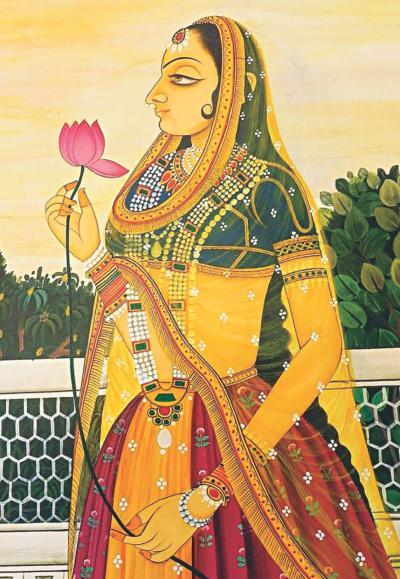
Pauwel’s project explores the poetry of an 18th-century woman known as Bani-thani or Rasik Bihari, who was a court performer and favorite of the Indian ruler Savant Singh (1699–1764) of Kishangarh.
Professor Heidi Pauwels (Asian Languages & Literature) was recently awarded a National Endowment for the Humanities fellowship to work on her book, The Voice of India’s 18th-Century Mona Lisa: Songs by Rasik Bihari of Kishangarh. Pauwel’s project explores the poetry of an 18th-century woman known as Bani-thani or Rasik Bihari, who was a court performer and favorite of the Indian ruler Savant Singh (1699–1764) of Kishangarh.
In 2017, Pauwels led a Simpson Center funded symposium, Memory Construction and Emotion in India, Past and Present, that examined how Hindu, Muslim, and Jain cultural self-understandings were shaped in India’s past and how that relates to the present. That same year, Pauwel published Mobilizing Krishna’s World: The Writings of Prince Sāvant Singh of Kishangarh (University of Washington Press), which discusses the political and religious upheaval of sixteenth and eighteenth century northern India through the life, devotional poetry, and paintings of Savant Singh, the Rajput prince unseated by his younger brother.
The NEH announced this round's grant winners on January 14. The federal organization awarded $30.9 million in grants to support 188 humanities projects in 45 states and the District of Columbia. An additional $48 million was also awarded to fund 55 state, territorial, and jurisdictional humanities councils, which serve local communities through a range of state-focused humanities discussion and educational outreach programs.
Congrats, Heidi!